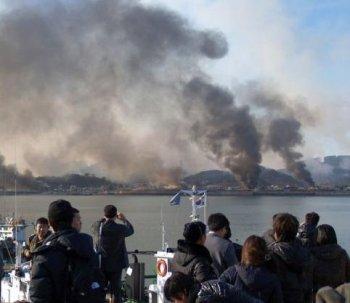The Chinese Communist Party (CCP) is racing against the clock in dealing with disputes about the South China Sea.
Chinese Communist officials put the world on notice about the seriousness of the Chinese regime’s claims to the South China Sea when they declared in early March to the U.S. Deputy Secretary of State James Steinberg and NSC Senior Director Jeffrey Bader for Asian Affairs that the South China Sea is a “core interest” for China.
Concern expressed by the United States, as well as the strong objections from other Asian countries, especially ASEAN nations that have water body disputes with China, caused the CCP’s rhetoric to soften as it rephrased discussion of this issue.
Even some Chinese scholars started to disagree that the South China Sea is a “core interest” of China. The issue was further diluted following the China-U.S.-Korean tensions in the Yellow Sea and the flare-ups over Diaoyu Island with Japan.
But the importance of the South China Sea to the CCP has not faded, and the way in which disputes over the South China Sea have become enmeshed with the CCP’s own claims to rule assure that the current peace is only temporary.
Whose Interest?
The South China Sea, which links China to its southern maritime neighbors, would, under any regime, be related to China’s core interests. But the core interests of China and of the CCP, with regard to the South China Sea and many other issues, are not the same.
The greatest “core interest” of the CCP is to maintain its autocracy. The United States, as an exemplary role model of a civilized policy based on universal values, is regarded by the CCP as the greatest external threat to its domestic autocracy.
Therefore, the CCP’s international strategy focuses on the United States as the greatest enemy. The propaganda in China reflects this, as it is filled with anti-U.S. content.
The CCP’s long-term strategy is to take the leading position in Asia, including having the greatest military strength in the Pacific and Indian Oceans, so as to secure more natural resources and exclude America’s power from Asia. Its efforts within the Shanghai Economic Cooperation Organization, the China-ASEAN Free Trade Area, and the Pearl Necklace Project in the Indian Ocean, all revolve around this strategy.
In the South China Sea, the CCP is seeking to push the United States out of any role in settling the disputes there.
The Chinese Assistant Foreign Minister Hu Zhengyu recently said: “China insists on using bilateral negotiations to solve the disputes over the South China Sea between the directly related parties. Before the resolving of the disputes, all parties should [in the words of a CCP slogan] ‘lay disputes aside and develop together.’”
“China places great emphasis on free and safe navigation of the South China Sea. China has always insisted that the freedom of navigation in the South China Sea should be protected and will continue to actively participate in the security cooperation over regional seas,” Mr. Hu said.
In other words, the CCP commits to protect the freedom and safety of navigation, which the United States is concerned about, but objects to U.S involvement in any disputes over the South China Sea.
Conflict in the South China Sea
Almost no one believes that the conflicts in the South China Sea can be resolved peacefully, no matter how many times the CCP claims that disputes should be settled by bilateral negotiation.
Whether or when to resort to force is the CCP’s big headache. Doing so would create an excuse for the United States to get involved in the South China Sea disputes.
Moreover, the contested archipelagos in the South China Sea are far from mainland China while close to ASEAN countries, which makes them hard for China to defend. A forced settlement could well evolve into a seesaw battle.
The Chinese armed forces could not secure a certain victory. Internal corruption has deeply crippled battle effectiveness. Chinese forces could not even handle the pirates in the Gulf of Aden. In fighting the ASEAN nations, who would have international backing, the result would be even more uncertain.
But the CCP’s hand will be forced by the expectations it has created among the Chinese people. If the disputes are not settled soon in China’s favor, the dissatisfaction of the Chinese people will soar. The internal conflicts between the CCP regime and the people are already very serious. If the CCP loses the South China Sea, the CCP could well be abandoned by the Chinese people.
The CCP’s first aircraft carrier will go into service in 2015. If by that time, the American military is still bogged down in the Middle East, and American economic recovery still lags so that the United States cannot cope with South China Sea disputes with all its strength, the Chinese military will act.
It will seize control of the archipelagoes with small-scale, controlled armed clashes, with the threat of an aircraft carrier offshore. At the same time, the CCP will use economic and diplomatic pressure on the countries that have disputes with China to force them to recognize China’s sovereignty.
The South China Sea will be claimed by the CCP in the same manner it seized Mischief Reef in the Spratly Islands, which is claimed by the Philippines.


